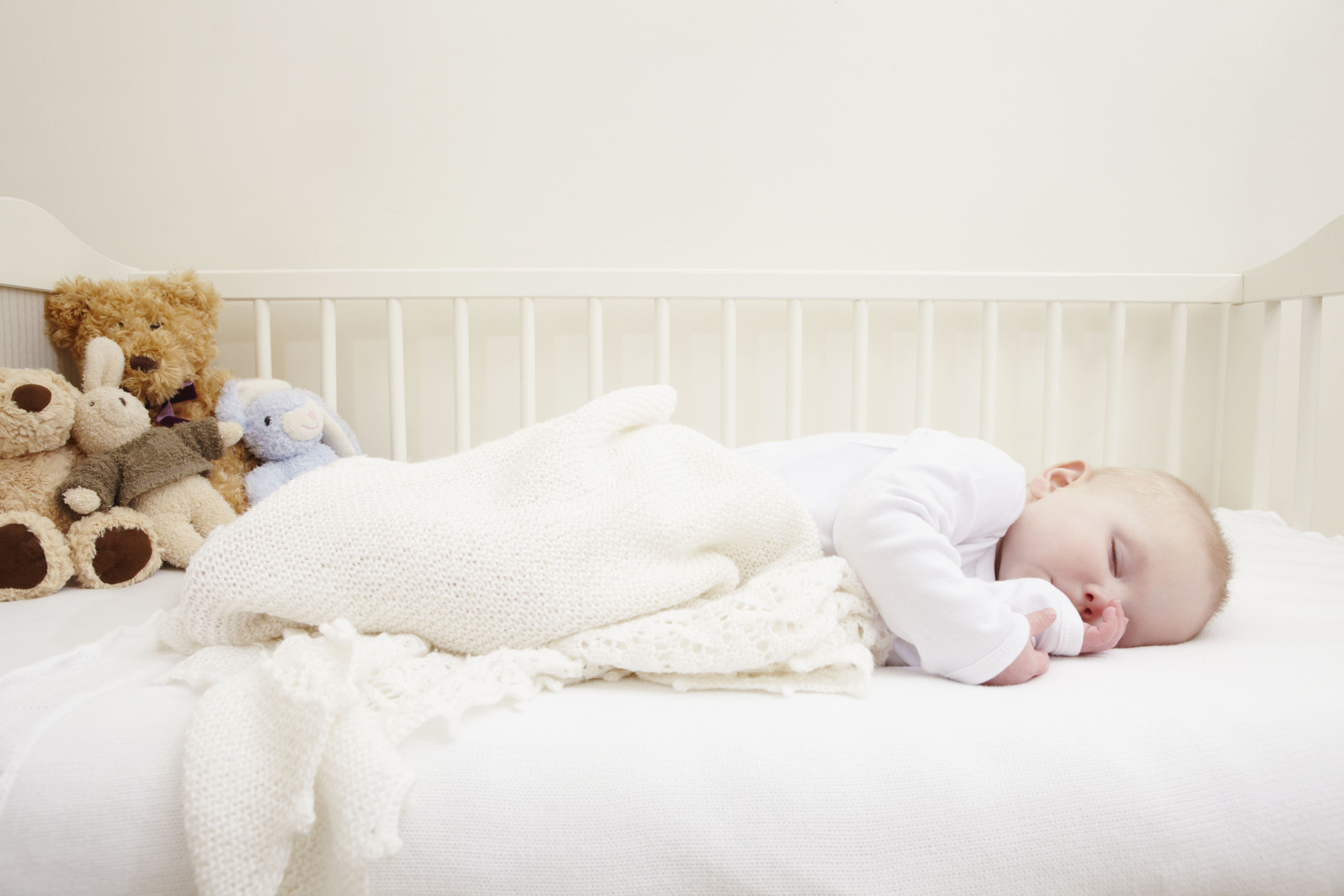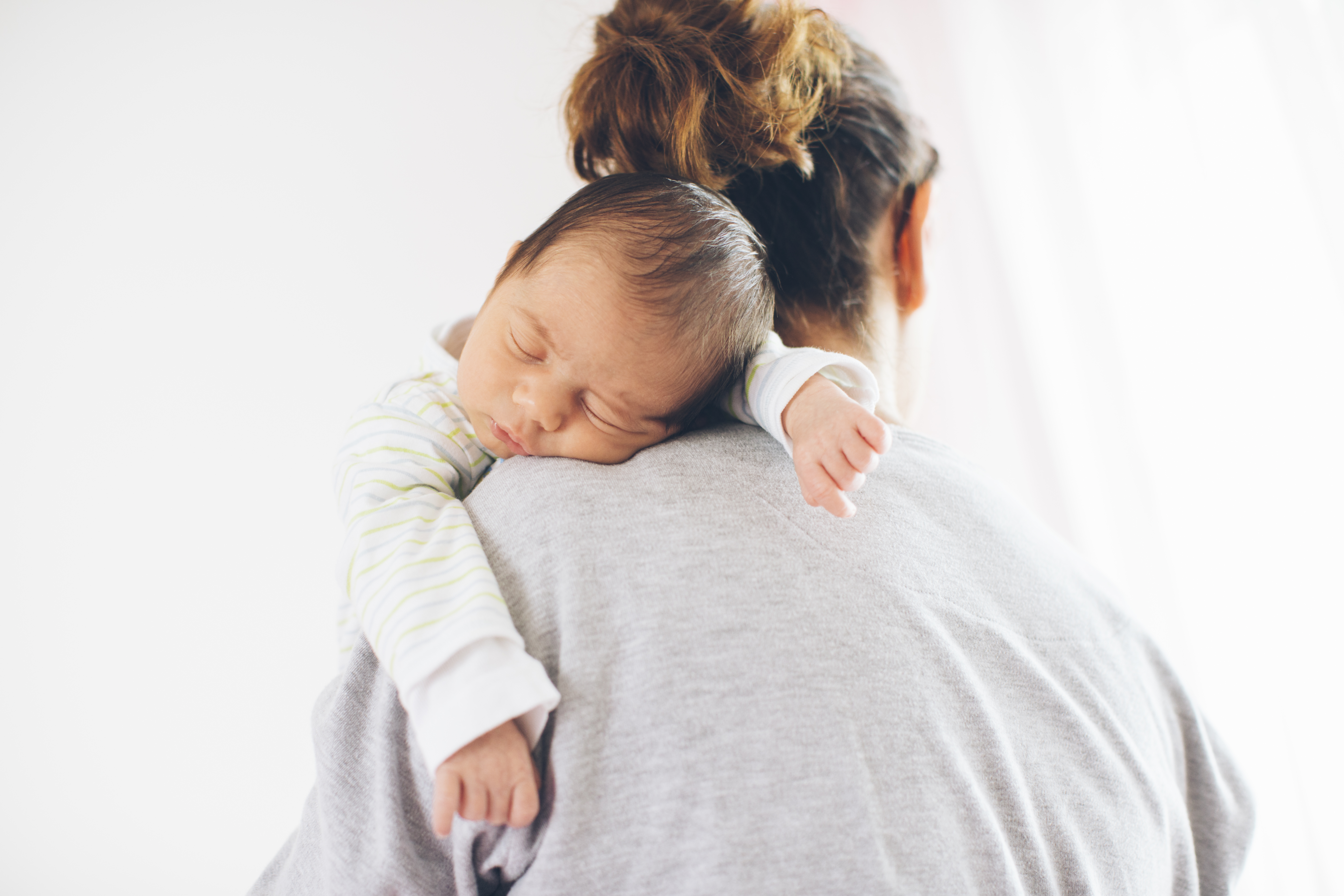Here are three clever - and easy - expert tricks to keep baby’s sleep on track when the clocks change
Can you actually master the clock change with kids or are you doomed...

Stephanie Lowe

When the clocks change - twice a year - sleep-deprived parents are blindsided. We spoke to the experts about what can help baby's sleep routine adapt and hopefully cling on to a tiny bit more sleep for the whole family.
The three tricks are to do with exercise, meal times and being prepared. Read more below. The other tool at your disposal is your baby monitor. When the clocks change, our circadian rhythm – the internal body clock that regulates our hormones and temperature – has to have time to essentially “re-calibrate”. And it can take a few days for this to happen, which is what affects children’s sleep schedules. Your baby monitor can help you keep on eye on slumbering tots and to keep the bedtime routine as 'usual' as possible.
Sleep expert and mum-of-two, Sarah Patel tells us; "Research shows getting outside in the morning can make the biggest difference in helping the body to adjust to the new time." And, mum-of-one, Steph says; "I am always chasing as much sleep as I can, so any expert hacks, tricks or clever ideas for beating the clock change I'm up for trying."
Keeping calm over your baby's sleep when the clocks change can be easy. The experts over at Babysense have shared a simple but incredibly clever hack to help your baby to adapt to the change in time.
How to maintain baby's sleep when clocks change
1. Stick to your normal routine
Little ones like routine, they thrive on it, so try to keep yours relatively unchanged when the clocks change. Aim to be calm and consistent - the familiarity will help them and their bodies adjust to the hours difference. While the routine can be the same, adjust the timings of everything 10 minutes earlier or 10 minutes later depending on which way the clock is changing. The same way as you change your children’s - this will make the transition smoother for everyone.

2. Exercise and time outside
Try to spend time with baby outside first thing in the morning to get some natural light, or if it’s too cold, open the curtains and windows. This will help their internal body clock tune into the time change.
Sleep expert and mum-of-two, Sarah Patel tells us; "Exercise really can improve sleep quality and duration. For babies this might involve swimming, tummy time, crawling around, playing games like fetching or holding objects. Also, for babies on solids, regular meals helps your body know what time of the day it is, so altering all mealtimes can help with adjusting to the clocks going back."
Parenting advice, hot topics, best buys and family finance tips delivered straight to your inbox.
As the evenings begin to get lighter it may be worth considering black out blinds for your little ones windows, which will also come in very handy when the mornings get lighter too!

3. Bedtimes & sleep
Don't be afraid to let your little one sleep a little longer if needed so they are not over-tired because overtired babies normally struggle to get to sleep.
Monitoring room temperatures is also a good idea, with your baby monitor as making sure your child is at the right temperature can help avoid their sleep routine being disrupted by feeling too hot or too cold. It’s also important to ensure your baby is woken up at the same time everyday and maintaining a balanced diet could also make a difference.
If you've begun weaning your baby and they're starting to eat solid foods, checking on the types of foods and sugar content they are consuming before bed could help maintain a good sleep routine.

Why is it important to adjust your baby’s sleep schedule?
The clocks going back might be slightly disorientating for adults, but for a baby, it’s perhaps even more vital for parents to help their little one’s sleep schedule evolve in advance.
“For some parents, getting your baby to sleep through the night can be a difficult task, but this can be made even harder when the clocks change,” explains Noah Levin, CMO at Babysense.

Sarah adds; "If your little one is struggling with the clock change try;
- Playing music, it can help lift their mood if they are having an attack of the grumps or for babies this may help them during their 'witching' hour when they are most tired and fussy.
- Nurture them, offer lots of comfort and don't expect too much from them later on in the day. You might want to do things which they find difficult e.g. getting into their pyjamas and brushing their teeth a little earlier to avoid doing it when they are at their most tired.
Noah agrees; “Many parents don’t take into consideration the fact that their baby might struggle to adapt to the extra hour in bed and it’s important to be aware of this. Preparation is key, so be sure to start making subtle changes a few days in advance to help your baby acclimatise.”
He adds, “By pushing your little ones' bedtime back by 10 minutes each day or giving them their meals at a slightly later time will have a profound effect on their sleep routine."
Related features:
- The 12 best baby monitors according to parent reviewers
- How to get your baby to sleep
- Sleep regression ages
Video of the Week:

Emma is a Senior Lifestyle Writer with six years of experience working in digital publishing, ranging from book publishing to magazines. She currently looks after all things Lifestyle for Woman&Home, Goodto.com, and My Imperfect Life.
- Stephanie LoweFamily Editor